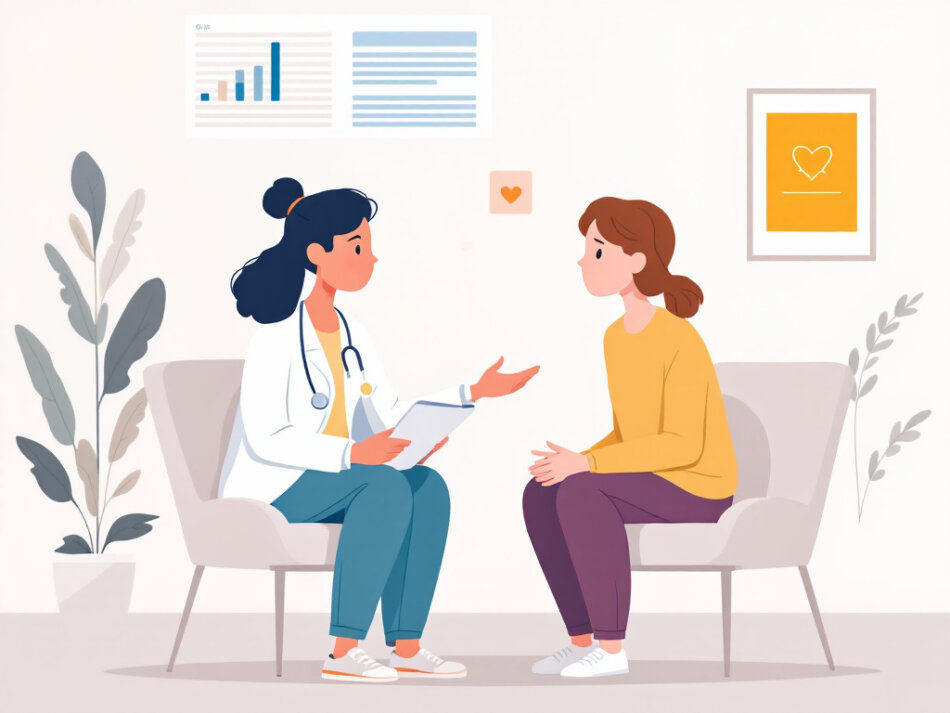You’re not alone when you seek therapy for adults with grief and traumatic loss. Losing someone or enduring a traumatic event can disrupt your emotional balance, strain relationships, and even manifest in physical symptoms. You need compassionate care that helps you process overwhelming feelings, regain stability, and build resilience. In this guide, you’ll learn how evidence-based therapies like EMDR, CBT, and DBT work, what insurance plans usually cover, and how to choose a program that fits your needs—all with the support necessary for lasting recovery.
Understand trauma effects
Facing grief and traumatic loss often means navigating intense emotions and reminders of pain. Understanding how trauma affects you can clarify why specialized support matters.
Emotional regulation impact
Trauma can overwhelm your ability to manage emotions. You may experience:
- Intense sadness or anger
- Mood swings or irritability
- Difficulty concentrating or making decisions
As a result, everyday tasks may feel daunting until you learn coping strategies that stabilize your feelings.
Relationships and social health
Grief and trauma often isolate you from loved ones. You might:
- Withdraw from friends or family
- Struggle to trust others
- Have conflict over misunderstood behavior
Rebuilding connections requires spaces where you can safely express your feelings and receive validation.
Physical well-being effects
Your body remembers trauma too. Common physical reactions include:
- Chronic fatigue or sleep disturbances
- Muscle tension, headaches, or digestive issues
- Heightened startle response or hypervigilance
Addressing these symptoms alongside mental health ensures a holistic recovery.
Explore therapy options
You have several evidence-based approaches that target traumatic loss. Combining modalities often maximizes healing.
| Therapy | Focus | Typical sessions |
|---|---|---|
| EMDR | Processing distressing memories | 8–15 sessions |
| CBT | Challenging negative thought patterns | 12–20 sessions |
| DBT | Building emotional regulation skills | 6–12 months |
| Holistic | Incorporating mind-body practices | Variable |
EMDR therapy for adults
Eye Movement Desensitization and Reprocessing (EMDR) uses guided eye movements to help you reprocess traumatic memories and reduce emotional distress. You learn to reconnect past events with safer perspectives, easing symptoms of PTSD, anxiety, and depression.
How EMDR works
- You recall a distressing memory
- A therapist guides bilateral stimulation (usually eye movements)
- You replace painful associations with more adaptive thoughts
EMDR session overview
- Assessment and history‐taking
- Preparation with relaxation techniques
- Desensitization through bilateral stimulation
- Installation of positive beliefs
- Closure and symptom evaluation
Most plans cover EMDR when deemed medically necessary (Insurance Curator). Check whether your therapist is credentialed in EMDR training to prevent reimbursement issues.
Cognitive behavioral therapy
Cognitive behavioral therapy helps you identify and challenge unhelpful thoughts that fuel grief-related depression or anxiety. Through structured exercises, you learn healthier perspectives and coping skills.
CBT techniques for grief
- Thought records to track triggers
- Behavioral activation to reintroduce meaningful activities
- Problem-solving skills for overwhelming situations
For combined approaches, consider trauma-focused CBT and EMDR therapy for adults.
Dialectical behavior therapy
Dialectical behavior therapy teaches you skills to manage intense emotions and improve relationships. DBT is particularly useful if grief triggers self-critical thoughts or interpersonal conflicts.
DBT skills for loss
- Mindfulness to stay present when memories arise
- Distress tolerance techniques for crisis moments
- Emotion regulation strategies to reduce reactivity
- Interpersonal effectiveness to communicate your needs
Holistic healing approaches
Holistic methods complement traditional therapies by addressing mind-body connections. You might explore:
- Yoga, tai chi, or gentle movement
- Meditation and breathing exercises
- Art therapy or music therapy
- Nutritional support and sleep hygiene
These practices can reduce stress hormones and support overall well-being.
Review insurance coverage
Navigating insurance often feels complex, but understanding key elements helps you plan your care.
| Insurance type | Typical coverage | Notes |
|---|---|---|
| Private insurance | 50–80% of therapy fees | May require preauthorization and in-network providers (The Empowering Space) |
| Medicare Part B/C | 80% after deductible | EMDR and talk therapy covered if medically necessary (Open EMDR) |
| Medicaid | Varies by state | Requires medical necessity; copays may apply (Open EMDR) |
| Sliding-fee & grants | Sliding scale, scholarships | Income-based options to reduce out-of-pocket costs (SAMHSA) |
Private insurance plans
Most major insurers cover psychotherapy, including EMDR, when your provider is in-network and the treatment is approved as medically necessary. You may need:
- Preauthorization or referral
- Proof you’ve tried other therapies first
- Detailed treatment plan and progress notes
Medicare and Medicaid
Under Medicare Part B and Advantage plans, EMDR and other therapies are typically covered at 80% of the approved cost. Medicaid coverage varies—look up your state’s policy and confirm provider enrollment.
Sliding-fee and grants
If private or public insurance leaves gaps, ask providers about:
- Sliding-fee scales based on income
- Charity care or scholarship programs
- Community health centers offering low-cost services
These options make therapy for grief and loss more accessible.
Documentation and authorization
To avoid denied claims:
- Verify your plan’s mental health benefits
- Obtain preauthorization when required
- Submit progress notes and medical necessity letters if asked
- Keep records of all communications with your insurer
Select program type
Choosing the right setting ensures you receive structured support tailored to your stage of recovery.
Trauma-informed therapy program
A trauma-informed therapy program integrates knowledge of trauma’s impact into every aspect of care. You’ll benefit from:
- Staff trained in trauma principles
- Safe, predictable environments
- Empowerment-focused approaches
Residential vs outpatient
Residential trauma recovery program (/residential-trauma-recovery-program)
24/7 structured care
Intensive therapy daily
Peer support community
Flexible scheduling
Maintain daily routines
Regular individual and group sessions
Specialized recovery programs
Some centers offer niche tracks like:
- Trauma recovery program that accepts insurance for covered trauma care
- PTSD stabilization units (ptsd recovery and stabilization program)
- Combined EMDR and DBT tracks (trauma treatment with emdr and dbt)
Selecting a program that accepts your insurance and matches your needs maximizes your chance for lasting progress.
Access supportive resources
Beyond formal therapy, additional resources can reinforce your healing journey.
Peer support groups
Connecting with others who share loss or trauma fosters understanding and accountability. Look for:
- In-person grief groups
- Online forums for trauma survivors
- Specialized support for abuse or neglect survivors (program for adults recovering from abuse or neglect)
Online and teletherapy
If travel or scheduling is an issue, teletherapy offers:
- Virtual EMDR and DBT sessions
- Apps with guided self-help modules
- Lower-cost online courses ($30–$150) (Elevations Health)
Self-help tools
In between sessions, you can practice:
- Journaling prompts for grief processing
- Mindfulness exercises for grounding
- Breathing techniques to calm hypervigilance
These habits reinforce skills learned in therapy and support daily resilience.
Plan your next steps
Moving from uncertainty to action empowers you to reclaim control over your healing.
Assess your needs
- Reflect on your current symptoms and triggers
- Identify which therapy modalities appeal to you
- Review your insurance benefits and out-of-pocket limits
- Determine whether residential or outpatient care fits your lifestyle
Connect with Centered Health
Centered Health specializes in comprehensive care for adults recovering from grief and traumatic loss. Our individualized plans integrate evidence-based therapies, trauma-informed environments, and flexible payment options. Take the first step toward lasting recovery—reach out to Centered Health today to discuss your unique journey and schedule a consultation.










